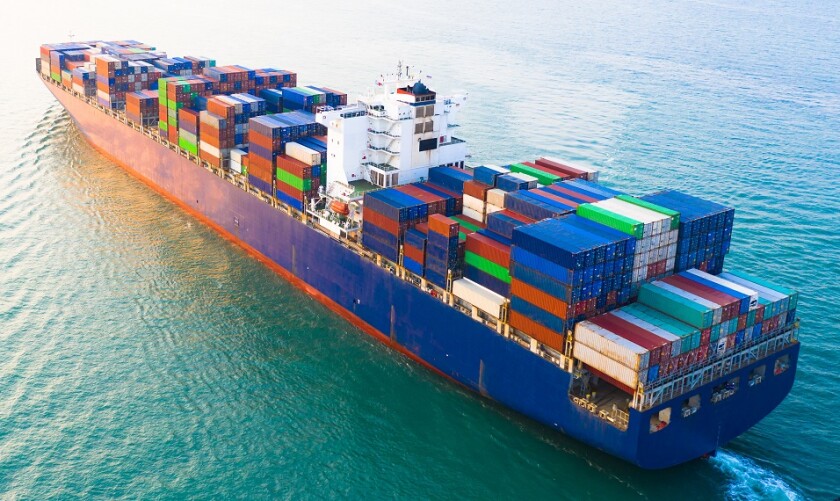The biggest trade risk in the region is between the US and the EU, which started amid the US-China trade war. These developments added to tax and trade uncertainty across the region. Tax professionals expect DSTs to be used as a bargaining chip in advancing trade discussions with the US.
North America
US-based tax professionals are focused on the OECD rewrite of corporate tax rules to fit the digital economy, but taxpayers are more concerned about the rise in DSTs ahead of an OECD solution.
Corporate supply chains have already been restructured in 2019 to accommodate the US-China trade war, and tax professionals see escalating trade tensions on the horizon with many EU countries, especially France, over DSTs. US-based taxpayers told ITR that they are firstly worried about internal system changes that will need to be made across their group entities to comply with these varying DSTs.
“The French, and other DSTs, apply the tax to a new tax base focused on user location. This presents issues as Facebook’s revenue is generated directly from advertisers, not users,” said Alan Lee, head of global tax policy at Facebook. “We may have the data to calculate the tax, but it requires additional time and resources to capture and maintain for tax and audit procedures,” added Lee.
The US has retaliated against the French DST by proposing tariffs on $2.4 billion worth of specialty goods from France. Trade discussions between the US and France and more widely with the EU are expected to unfold at the World Economic Forum on January 21.
A pending ratification of the US-Mexico-Canada Agreement (USMCA), replacing the North America Free Trade Agreement (NAFTA), is another key area of interest for taxpayers, especially since Mexico and Canada have also proposed DSTs ahead of finalising the trade deal.
“The DSTs that were proposed by Mexico and Canada could increase tax and trade tensions, but they are not as prominently discussed as the French DST,” said one US-based head of tax at a multinational retail company. “I think both jurisdictions will move ahead with DSTs, but my [assumption] is that they are waiting for the OECD outcome,” he added.
More widely, a change in political agendas following elections in Canada and Mexico in 2019 and the 2020 US elections continue to alter the trade and tax landscape in the region.
“There are a lot of expectations with the new party in power in Mexico and it is not clear what tax implications that brings for companies yet,” added the head of tax.
Tax reform introduced towards the end of 2019 under the leadership of President Andrés Manuel López Obrador in Mexico took effect on January 1 2020. The reform brought Mexico closer to OECD tax standards, including hybrid mismatches (Action 2 of the BEPS project), limitation on interest deductions (Action 4), harmful tax practices (Action 5), prevention of tax treaty abuse (Action 6) and mandatory disclosure rules (Action 12).
This trend of countries across the Americas amending their tax rules to ensure closer alignment with OECD tax standards will continue and will help long-term international trade relations and compliance. In addition, this will see significant changes in Brazil over 2020, where the government is overhauling its tax rules, which includes aligning its transfer pricing regime with international standards.
South America
The tax landscape in Latin America (LATAM) is similarly focused on political shifts that have led to tax reforms that align domestic tax rules with OECD standards. Transfer pricing (TP) and the digital economy are key areas where new rules are being introduced.
“Some LATAM countries are also introducing digital taxes, but so far most of them are not relevant to us. It is still concerning and we have to check if we fall in the scope,” said a LATAM tax manager with a multinational technology company.
Elections at the end of 2019 in Argentina resulted in recent corporate tax developments, including a 30% tax on all purchases made abroad. Companies such as Spotify and Netflix were expected to be hit particularly hard by these changes, but neither was available for comment.
“As you may see, the tax perspective for 2020 in Argentina is about increasing the tax burden on companies,” said Florencia Fernández Sabella, tax partner at Laiún, Fernández Sabella & Smudt, given that the country is still dealing with its debt crisis.
“However, this is not the scenario for every company in Argentina as a new special tax regime for tech companies has been created. This 10 year-long special regime includes tax incentives such as fiscal stability, 15% income tax rate, reduction in payroll taxes, among others,” she added.
In Brazil, the TP framework is transforming from a unilateral system to one that aligns with international standards as President Jair Bolsonaro prepares to make the country an OECD member.
“Brazil wants to harmonise TP legislation with the OECD, but it will take many years before anything is finalised,” said Francisco Lisboa Moreira, partner at Bocater Camargo.
Meanwhile, scrutiny of TP practices and document requirements continues, according to tax professionals. Tax disputes still take longer to resolve in LATAM countries than in other jurisdictions. As such, tax professionals stress that keeping a close document trail of transactions and their business purposes is essential.
“Excluding Brazil, Latin American jurisdictions in general have quite similar tax regimes, so it is easier to manage [tax developments],” added the LATAM tax manager.
In Brazil, where tax disputes are common, the mutual agreement procedure (MAP) could offer some welcome developments in 2020.
“A successful MAP project in Brazil could improve the country’s current scenario of chaotic litigiousness and juridical instability – at least on international tax treaty matters,” said Gil Mendes, tax partner at Mattos Filho.
From navigating a rise in DSTs globally and domestic tax reforms following regional political shifts, as well as the volatility in trade relations, the tax landscape in the Americas will see significant change in 2020.











